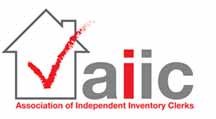Home | News & Blog | Landlords can have unrealistic expectations at check-ins
Whilst the tenant has a duty of care to return the property in the same condition at the end of the tenancy as found at the start (allowing for wear & tear) as listed on the inventory report, the law does not allow landlords to claim ‘betterment’ from the tenant’s deposit.
The betterment principle applies to cleaning issues as well. If a carpet was badly stained at the time of check-in a landlord can’t expect the tenant to pay for cleaning at the check-out, no matter how long the tenancy has been.
Often landlords will not bother to read the check in inventory which will properly detail the condition. Normal wear and tear is a fact of life with rental properties, just as it would be at home. The best way landlords can ensure that the property’s condition is fully recorded is by having a comprehensive inventory in place at the start of any new tenancy, and that a thorough check-in and check-out report is completed.
Many agents and landlords are seemingly unaware of the ‘betterment principle' which means that if an item was old or worn at check-in, and after a two year tenancy there is some additional damage, the law will not allow a landlord to simply replace this item with a new one. Instead, some sort of compensation is allowable.
Whether you are a landlord or a tenant Ashworth Group Inventory clerks are experts in assessing fair wear and tear and have the knowledge and experience to take into account all factors before making their recommendations.





